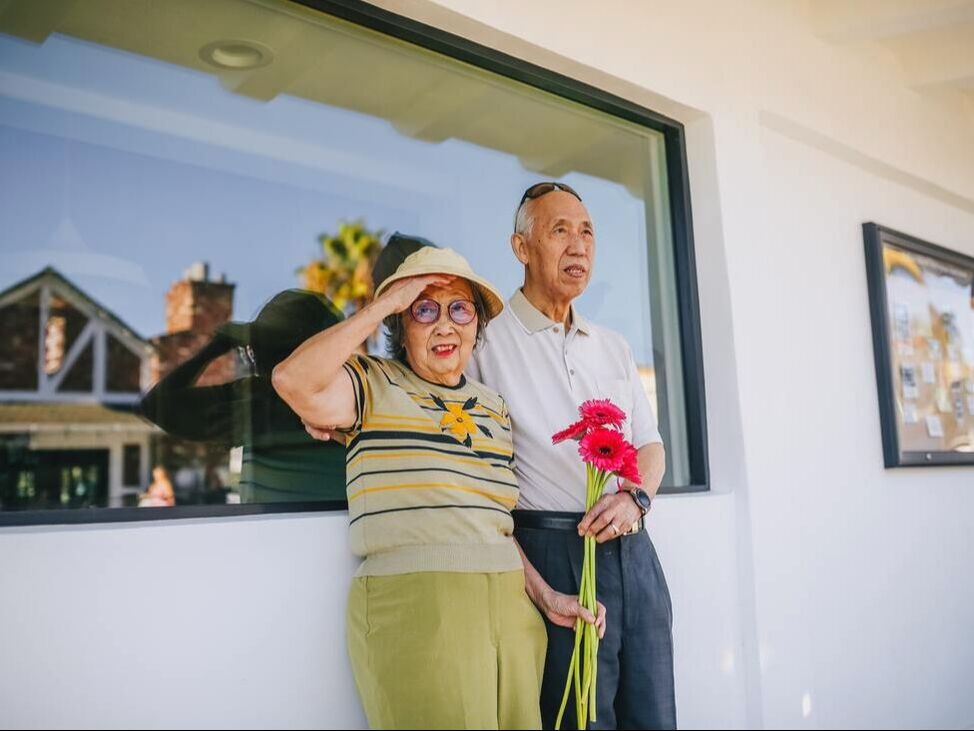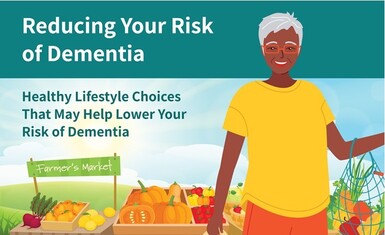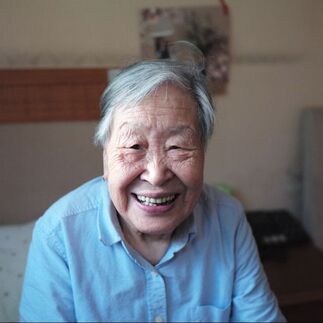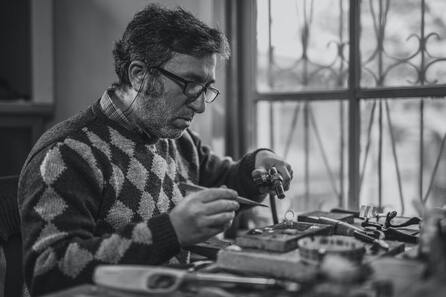|
Hot weather can pose serious health risks to older adults, especially those with pre-existing medical conditions. Here are five important safety tips that can help keep senior citizens healthy during hot weather:
Check the links below for more ways to beat the heat.
0 Comments
Summer squash, peaches, corn... Simple ingredients for the 2019 Healthyish Farmers’ Market Challenge.
Turnips are an incredibly versatile vegetable that offer a wealth of health benefits. Rich in vitamins and minerals, turnips provide essential nutrients such as vitamin C, potassium and magnesium – all of which help to support the immune system. They also contain dietary fiber, which helps to keep you feeling fuller for longer and can aid digestion by helping food move through your digestive tract more smoothly. Additionally, studies have shown that turnip consumption has been linked with lower risk of certain cancers due to their high antioxidant content – making them a great addition to any diet!
For those looking for easy recipes using this healthy vegetable: Main Course - Turnip Gratin Preheat oven 350°F (180°C) Peel 2 large turnips then cut into thin slices; place in 9-inch baking dish or gratin pan lightly greased with butter or oil. Sprinkle 1 cup (250 mL) shredded cheese over top; add salt & pepper if desired. Bake uncovered about 30 minutes until golden brown on top & tender when pierced with knife tip; let stand 10 minutes before serving hot from oven accompanied by green salad tossed in vinaigrette dressing if desired. Side Dish - Roasted Turnips Preheat oven 400°F (200°C) Wash 4 medium sized peeled turnip cubes then toss together in bowl with 3 tablespoons olive oil plus salt & pepper as desired; spread evenly on parchment paper lined baking sheet tray. Roast 25–30 minutes turning once half way through cooking time until golden brown outside but still slightly firm inside when pierced; serve warm sprinkled fresh herbs such as parsley oregano thyme etc., along side main course meal. Dessert - Caramelized Baked Apple Turnip Preheat oven 375 ° F(190 ° C) Peel and core equal amounts of apples and turnips (2-3 each) Cut into wedges and place into a baking dish Mix together
Bake covered 20–25minutes Uncover, sprinkle sugar over surface and bake 15–20minutes further Stir occasionally to caramelize all surfaces nicely Serve warm Top with ice cream  With summer here and temperatures rising, it is important to understand the health risks of excessive heat and recognize the signs of heat-related illness. Being hot for too long can be a problem. It can cause several illnesses, all grouped under the name hyperthermia. These factors can increase your risk of hyperthermia:
Caregiving can be rewarding, but it is also challenging. That’s why taking care of yourself — physically and mentally — is one of the most important things you can do as a caregiver. A few ways you can care for yourself include:
Caregiving Throughout the Circle of Life: Present, Patient and Kind Life blindsided our family in the fall of 2018 when my wife, Pat, was diagnosed with pancreatic cancer that quickly progressed to stage IV. After a torturous 17-month journey of tests, chemotherapy, ER visits, surgeries, extended hospital stays, and clinical trials, Pat went to her heavenly home. But the chaos pancreatic cancer tried to create could not steal our joy of life, kill our faith or destroy our hope for the future. My bride of over 35 years blessed us with three terrific children. They, in turn, have blessed us with seven grandchildren, ranging in age from 9 to 1 year old. Close geographic proximity and strong relationships allowed us to help care for our six oldest grandchildren together before cancer took Pat’s life in 2020. It is one of the greatest blessings we have ever had. Our grandchildren truly stole our hearts. I learned a few key lessons from caring for our grandkids that helped me care for my beautiful spouse. Now, I am absolutely not implying to ever treat an adult like a child. Adults who need assistance in daily life deserve respect, dignity and the ability to maintain some type of independence. They have feelings, thoughts and opinions that must always be considered. However, beginning-of-life and end-of-life care share some characteristics. Pancreatic Cancer Action Network
If you have older family members or loved ones, you may worry about their health as they age. Aging increases the risk of chronic diseases such as heart disease, type 2 diabetes, arthritis, cancer, and dementia. The good news is that adopting and maintaining a few key behaviors can help older adults live longer, healthier lives. As a family member, it’s important to encourage healthy lifestyle behaviors in your loved ones — it’s never too late to start!
For tips on healthy aging, click the button below. Deciding to become physically active can be one of the best things you can do for your health. Exercise and physical activity are not only great for your mental and physical health, but they can help keep you independent as you age.
To learn more, click the button below. Answering the question “what should I eat?” doesn’t need to leave you feeling baffled and frustrated. In fact, when you have the right information and motivation, you can feel good about making healthy choices. Simple adjustments can go a long way toward building a healthier eating pattern.
Click the button below for tips to plan healthy and delicious meals.  Many factors may influence your risk of dementia, including genes, environment, and lifestyle. You can’t change some factors, but, as with many diseases, there may be steps you can take to help lower your risk. Learn more about how leading a healthy lifestyle is important for your health. To learn more, click the button below. If you do not see an aging friend or relative often, changes in his or her health may seem dramatic. In contrast, the primary caregiver might not notice such changes or realize that more help, medical treatment, or supervision is needed. Or, the primary caregiver might not want to accept the fact that the health of his or her spouse or parent is failing.
As a caregiver, you can provide support by helping an aging friend or relative get the care they need. To learn more, click the button below. Shadow comforts and quick fixes deplete and exhaust.
Check out these ten ways to solve the self-care conundrum. "Delirium is a sudden change in your alertness and thinking. People with delirium typically become confused and have trouble paying attention."
Healthline's Chitra Badii continues, "Delirium is an abrupt change to your mental state. It makes it difficult to think, remember, focus, and more. Some people with delirium become drowsy and quiet, while others can become agitated." Badii expands her article to cover:
Build drinking water into your routine.
- Oregon.gov
Smoke levels can change rapidly depending on weather. Check current conditions on the Oregon Smoke Information Blog (oregonsmoke.org). Remember that cloth, dust and surgical masks do NOT protect from the harmful particles in smoke. N95 or P100 respirators approved by NIOSH may offer protection, but they must be properly fitted and worn. They won’t work for everyone, especially children. Here's how you can protect yourself and your family when smoke levels are high:
- Oregon.gov
Some people perform incredible feats of strength and endurance well into their retirement years. The great news is: You don’t have to bench press 300 pounds or run a marathon to benefit from strength training.
NIA-funded researchers have been studying the effects of strength training for more than 40 years and have identified multiple ways it can benefit older adults, including maintaining muscle mass, improving mobility, and increasing the healthy years of life. Click below to learn more about the findings, along with tips for maintaining strength or becoming stronger as you age. Your skin changes as you age. It becomes thinner, loses fat, and no longer looks as plump and smooth as it once did. Your veins and bones can be seen more easily, and scratches, cuts, or bumps can take longer to heal. A few things you can do to keep your skin healthy and protected this summer are:
It’s important to understand what is and isn’t a normal part of aging. Many people make assumptions about what it’s like to grow “old” and how older age will affect them. Research has shown that you can help preserve your health and mobility as you age by adopting or continuing healthy habits and lifestyle choices. A few common myths about aging are:
National Council on Aging Presents - National Falls Prevention Awareness Week
The National Council on Aging has sponsored National Falls Prevention Awareness week for the past 15 years. The goal of this campaign is to provide older adults with valuable information on how to reduce their risk of falling, and spread awareness about why this matters. NCOA's Falls Free CheckUp is an online screening tool that can serve as a first step for older adults to learn more about falls risk and steps to prevent falls and accidents. National Falls Prevention Awareness Week will be held on September 18-24, 2022. |
Caregiver
Whether in a medical professional setting or personal homes, Caregivers are caring and caring takes energy, wisdom and compassion. This Caregiver Blog is here to give you insight, encouragement and tools, not just to give care but to survive and thrive while doing it. Archives
July 2023
Categories
All
|




 RSS Feed
RSS Feed
